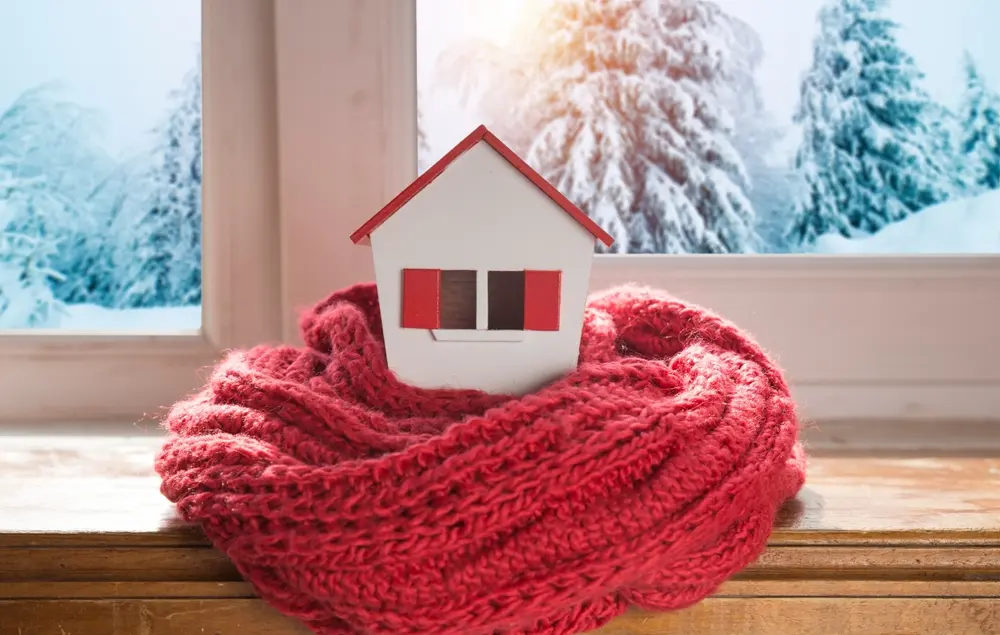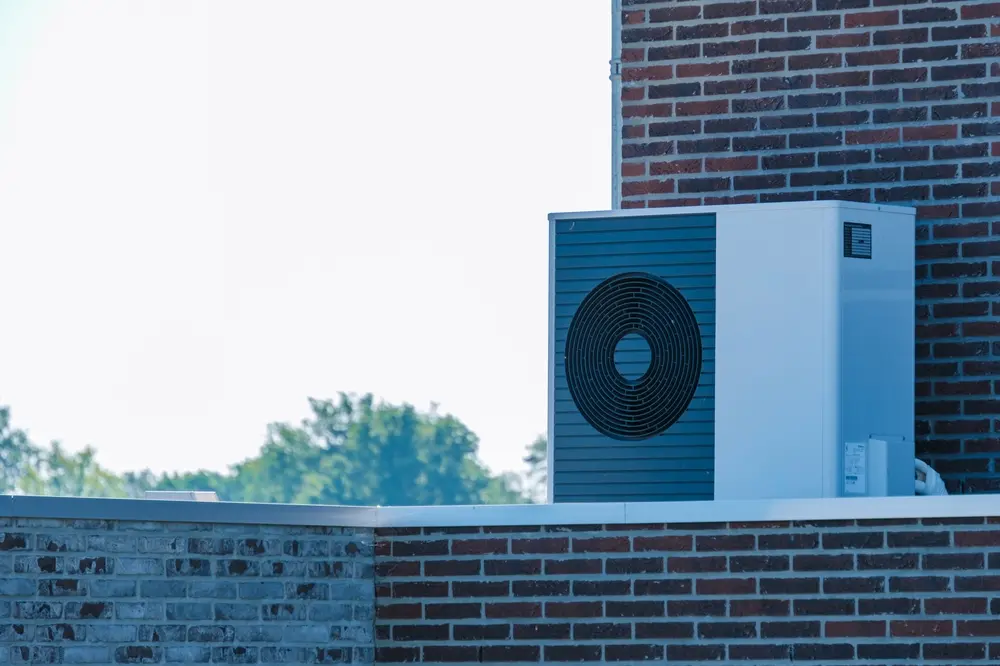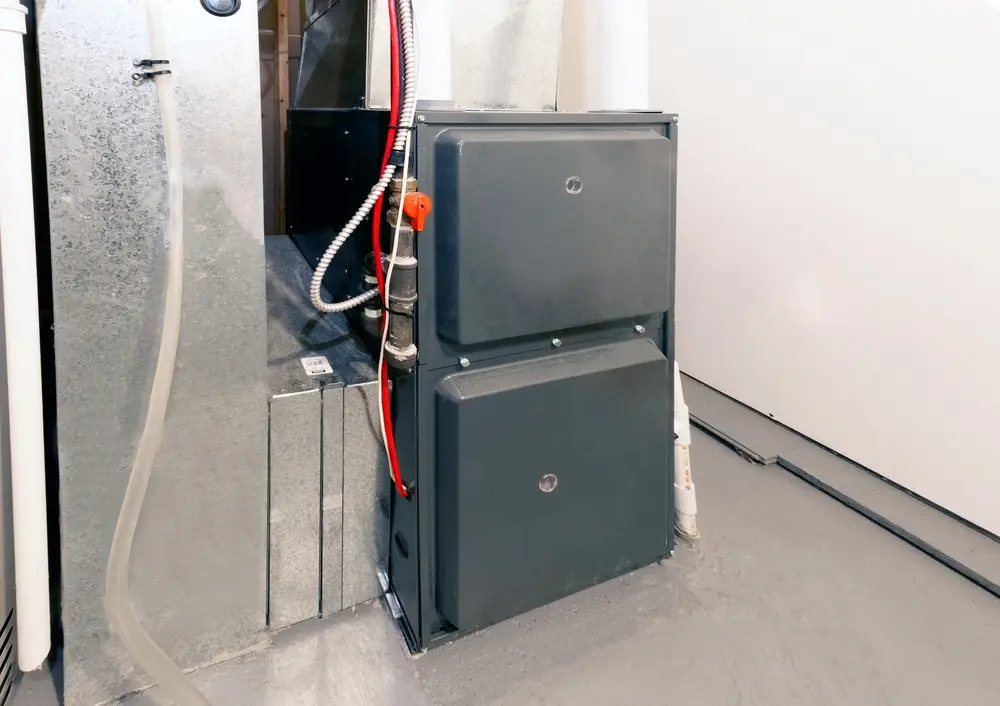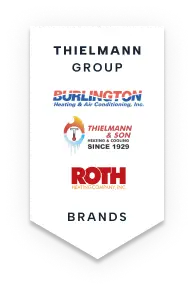
Choosing between a heat pump and a furnace can be tough. The main difference? Their performance. Both of these systems suit different environments and preferences. This guide will illustrate such differences, helping you feel good about your decision. Our team at the Thielmann Group provides comprehensive installation for whichever system you choose.
If you are considering a furnace it’s important to consider which type best suits your home:
- Gas
- Oil
- Electric
How Climate Affects Your Heating System Choice
The biggest factor in selecting your new system is the climate of your area. By selecting a system that suits your environment, you can enjoy better comfort at lower costs. Those living in harsher climates should consider furnaces.
For mild winters, a heat pump is better suited as it adjusts between heating and cooling. Wisconsin winters can be extremely cold. Highs only reach the 20s while the lows can drop deep into the negatives. Snowfall adds to the chill with an average of 40-50 inches of snow a year. For these extreme factors, a furnace may be better suited for residents. A furnace provides high levels of heating due to using fuel for combustion.
Electric Heat Pump vs. Gas Furnace: How They Each Work
The main difference between these options is how they produce and transfer heat.
A furnace uses a fuel source, oil or gas, and burns it to transfer into a heat exchanger. The heat exchanger takes in the cold house air and absorbs the heat. The warm air circulates through your ducts, warming the overall temperature.
A heat pump uses both a heating and cooling system to move heat. This system gathers heat from the outside air and transfers it to a liquid refrigerant. That refrigerant is placed into a heat exchanger where the air blows through creating warm air. Finally, that warm air is dispersed into the home. Heat pumps have the bonus of being able to gather heat even if the outside is cold. They also provide a cooling option, removing the heat from the home and exchanging it for cooler air.

Energy Efficiency
Energy efficiency is a hot topic—and a heat pump definitely has a competitive edge. A heat pump transfers more energy than the amount it takes in. On the opposite end, an efficient furnace provides about 98.5% Annual Fuel Utilization Efficiency (AFUE).
Climate impacts the efficacy of your heating system. Heat pumps are suitable for warmer climates as they use less energy than furnaces. In colder climates, furnaces have better efficiency since fuel costs less than electricity. It is important to consider lifetime costs when settling for a system. A professional from the Thielmann Group can help you with all of this.
Cost of Gas Furnaces vs. Heat Pumps
A big concern is the upfront cost of installing a new system. A gas furnace comes with a high installation cost as it involves installing gas lines and a ventilation system. The bright side is that the upfront cost of the unit itself is lower. Heat pumps, however, have a higher upfront price tag with lower installation costs.
The gas for a furnace is typically cheaper than electricity but the lifetime costs may be higher. Lifetime value is affected due to the need for repairs and maintenance to components of the furnace. The electricity for a heat pump has a higher price attached but the efficiency in warmer climates lowers the lifetime operating costs.
For repairs for either furnaces or heat pumps, the Thielmann Group is here for you. We provide efficient and fairly priced solutions to get your heating up and running!
Safety Considerations
There are safety concerns linked to both furnaces and pumps. The gas used has the risk of exploding while leaking gas risks carbon monoxide poisoning. The furnace has safety features to offset the risk of danger. Features like pressure regulators and automatic shut-off valves help homeowners prevent an explosion from occurring. Heat pumps come installed with safety features as well.
The pump has automatic shut-off valves and detectors in the case of a refrigerant leak. A heating expert can assist you with inspection and maintenance. This will help ensure your safety and the stability of the system.
Regular Maintenance & Lifespan
Regular maintenance can extend the life of your system, no matter which one you choose. A heat pump includes an outdoor and indoor unit, so regular checkups and cleanings ensure efficiency. The furnace lacks an outdoor component but is usually attached to a central AC unit. Various factors influence the system’s life. Factors include:
- Size
- Patterns of use
- Environment
- Thermostat settings
- Installation quality
With a professional inspection, an expert will assess the state of your system to paint a bigger picture of its life. Our team at the Thielmann Group is ready to answer any maintenance questions you have.
Space Requirements
Furnaces must be installed indoors, usually attached to the AC unit. For furnace placement, there needs to be at least 30 inches on all sides for clearance.
Heat pumps are installed outdoors but only require around 24 inches of clearance. Additionally, a traditional heat pump requires installing an indoor piece called a fan coil.

Oil Furnace vs. Heat Pump
A similar case to the heat pump versus a gas furnace. The major difference lies in the furnace using oil as the heating source. The points when deciding between the two can broken down as such:
- Cost – Consider how much you will spend on oil or how much your energy bill is.
- Climates – Heat pumps suit the milder climates while oil furnaces help against the extreme cold season.
- Resource – You have to be concerned about your oil supply. The electricity for a heat pump only stops during a power outage.
- Space – An oil furnace only has an indoor unit while the heat pump has indoor and outdoor installations.
Electric Furnace vs. Heat Pump
In this case, both items use electricity. Both are best utilized in the milder climates such as the southern states. The furnace uses electric coils to create the heat while the heat pump takes in outside to the inside. Heat pump systems have backup heat sources in the case of extreme weather conditions.
Electric furnaces guarantee 100% efficiency but that comes at the cost of being over two times more expensive than a heat pump. A heat pump comes with the additional feature of a cooling system for the warmer days.
Heat Pump vs. Furnace: Which Is Best For Your Home?
Finding the best energy-efficient heating system starts with your climate. Those in the southern states with milder climates may spring for a heat pump. The heat pump provides heating at any time of the year and is powered by your electricity. Areas with colder climates like Wisconsin will want to go the furnace route. In Wisconsin, about ⅔ of households use natural gas to heat their homes.
Households need the large amounts of heat that only the furnaces produce. After combating the climate, the decision comes down to aspects like space and cost. To take the stress out of the decision, call on the professionals from the Thielmann Group. Our experts will walk you through the best available options for your home. Keeping your home comfy is our top priority.
Heating System FAQs:
Should I replace gas central heating with a heat pump?
Making the replacement depends on certain factors. First is knowing the state and age of your current system. If efficiency is an issue, you want to look to change over. A heat pump is more efficient than a furnace in general; both can be affected by colder temperatures. If you need a replacement, consider the cost of a whole system. Heat pumps have an expensive upfront cost for installation but are a great investment as they save on energy bills.
What is the downside of a heat pump?
Heat pumps are only efficient when the temperature is high. Colder temperatures make the system work harder to produce the needed heat. Electricity is how the pump functions so an outage will cease operation altogether. Heat pumps come with an expensive upfront installation cost as well.




